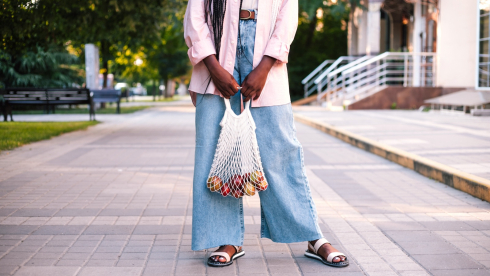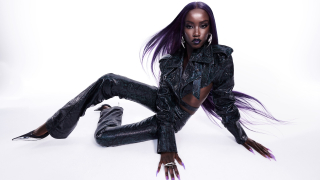We have witnessed massive outcries against police violence in the United States since August 9, 2014: the day unarmed Ferguson teen Michael Brown was shot to death and left in the street for more than four hours. In the days that followed, heavily militarized police forces would respond to protests addressing both the 18-year-old’s killing and a long history of abusive policing in the area, complete with tanks and teargas, curfews and the National Guard. The small Midwestern suburb that had previously been unknown to most outside St. Louis would become synonymous with both police brutality and citizen resistance.
The force with which protestors were met was famously documented by members of the national media, not just because they’d witnessed it—but because they experienced it. CNN anchors choked through tear gas during live broadcasts. Reporters Wesley Lowery and Ryan Riley were arrested on dubious charges after being asked to disperse from a local fast food restaurant, as they complied with officers. The freedom that American journalists typically take for granted were disregarded in the most public of ways.
I say all of this not to give reporters undue credit; it is activists, new and seasoned alike, who sparked what we know as the Black Lives Matter movement. But as we look at the events of the past week, this context is important. The videotaped deaths of Alton Sterling in Baton Rouge and Philando Castile in the St. Paul, Minnesota area have both made national headlines and sparked outrage, with there being clear agreement between media and the those broadly painted as “Black Lives Matter supporters” that these men should not have died, and that they died because of reckless, racist policing.
But just one day after the Facebook Live video recorded by Castile’s fiancée horrified people across the world, 12 people were shot at an otherwise peaceful Dallas protest against police violence; all but one of those shot were police officers, five of them died. A Black female protester was also injured while shielding her children. Black Lives Matter organizers publicly condemned the mass shooting, in the way that people of color and Muslims often do (see here and here), as if it should not go without saying that the anti-police violence movement has been exactly that: a public cry for an end to abusive policing, not the lives of police.
This sort of humanity is not often seen when a police officer has needlessly taken the life of a civilian; in fact, police message boards have found chilling expressions to the contrary over and over again.
We know little about who is responsible for what happened in Dallas and if history has taught us anything, we should not rush to accept the official narrative that has been presented and I will say nothing about that narrative at this moment. But here is what we must understand: there has been this troubling thread throughout the past two years of pundits and politicians weighing in on the broken relationship between Black people and law enforcement: that there is great, if not equal accountability on both sides. That somehow, Black Americans have to bear some of the responsibility for the animus many of them hold toward the police.
When a deranged man came from Baltimore to Bedford Stuyvesant, Brooklyn (an area known for the abusive practices of local law enforcement) and ambushed two police officers last year, there was an immediate response of “See, both sides are suffering!” But while those murders, like the ones in Texas last night, were totally unjustified and heartbreaking, it is unreasonable to suggest that police face the same danger at the hands of civilians that civilians face at their hands. Were that the case, considering the number of weapons in Black communities across this country, we probably would have seen more of these horrible killings.
The danger of American policing doesn’t just leave Black people dead, it finds them behind bars, saddled with unreasonable fines and tickets, unable to obtain employment, afraid to call for help when it is needed and dealing with the trauma that accompanies the knowledge that the hands that took an oath to protect you are legally emboldened to do quite the opposite. The police cannot say the same of Black people and being hated, protested, called “pigs” and, even the target of tragic, yet infrequent attacks does not equate to centuries of abuse.
This is not a defense of violence against police. May our humanity not wither to such a place that the targeting of arbitrary cops feels like justice. May we challenge the overseer-like entitlement of so many police in ways that don’t reduce the best of us, our activists and leaders, to the worst of them.
This is a call to stay vigilant in keeping the proper narrative alive: Alton Sterling and Philando Castile died senselessly and the hands of law enforcement officers, like many Americans before them.
We must continue to challenge a nation that has allowed that sort of killing to happen over and over again. We can walk and chew gum at once and we can mourn the slain Dallas officers as we continue to push police violence. We mustn’t apologize for demanding that Black people are treated with the same rights as others.
Nothing has changed.
Jamilah Lemieux is EBONY Magazine’s senior editor.












